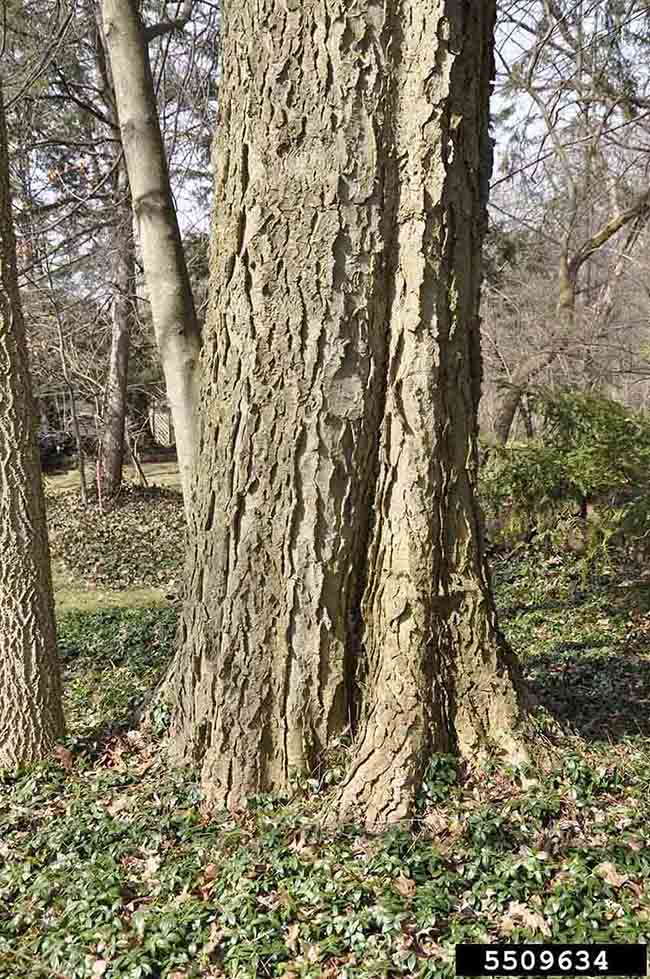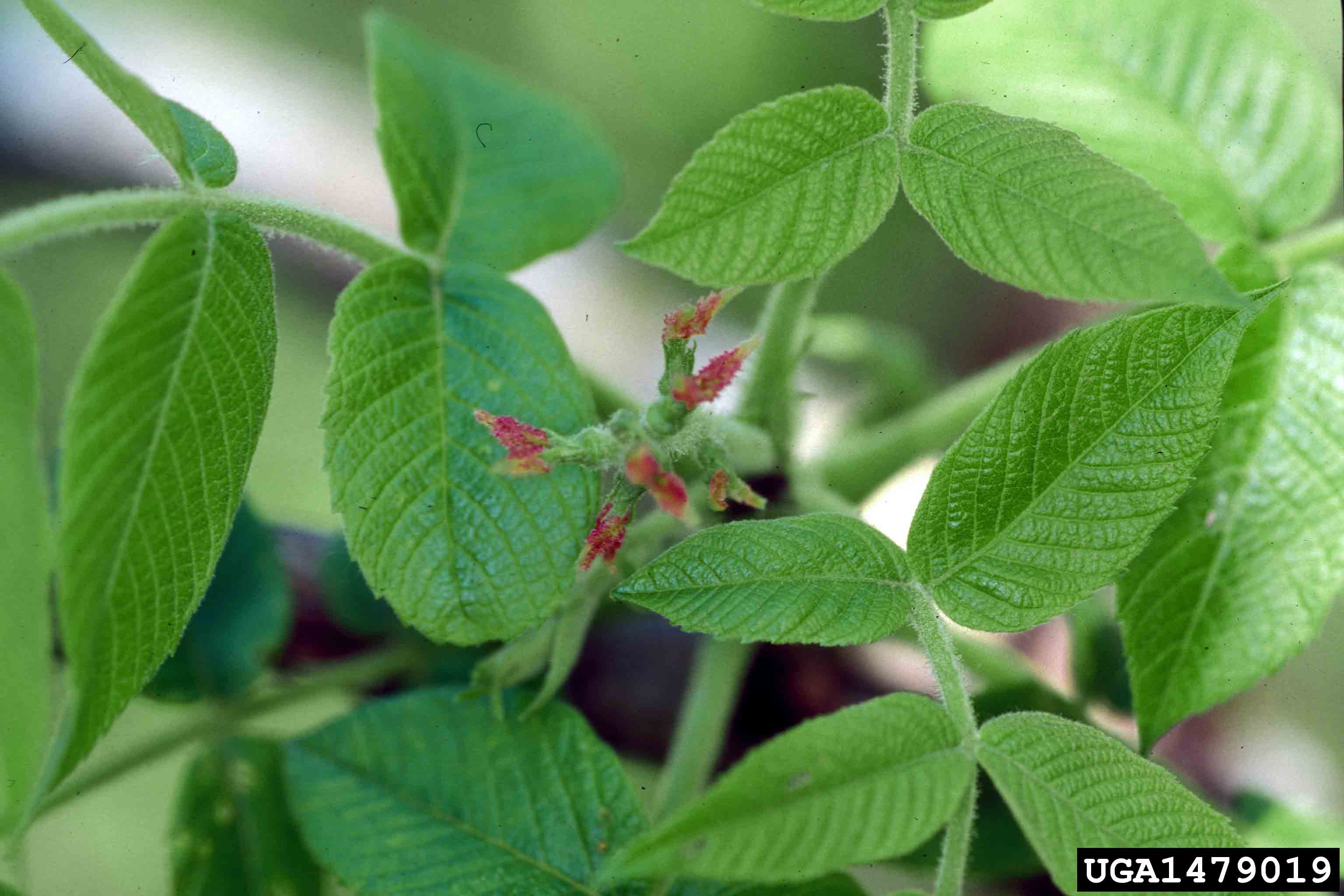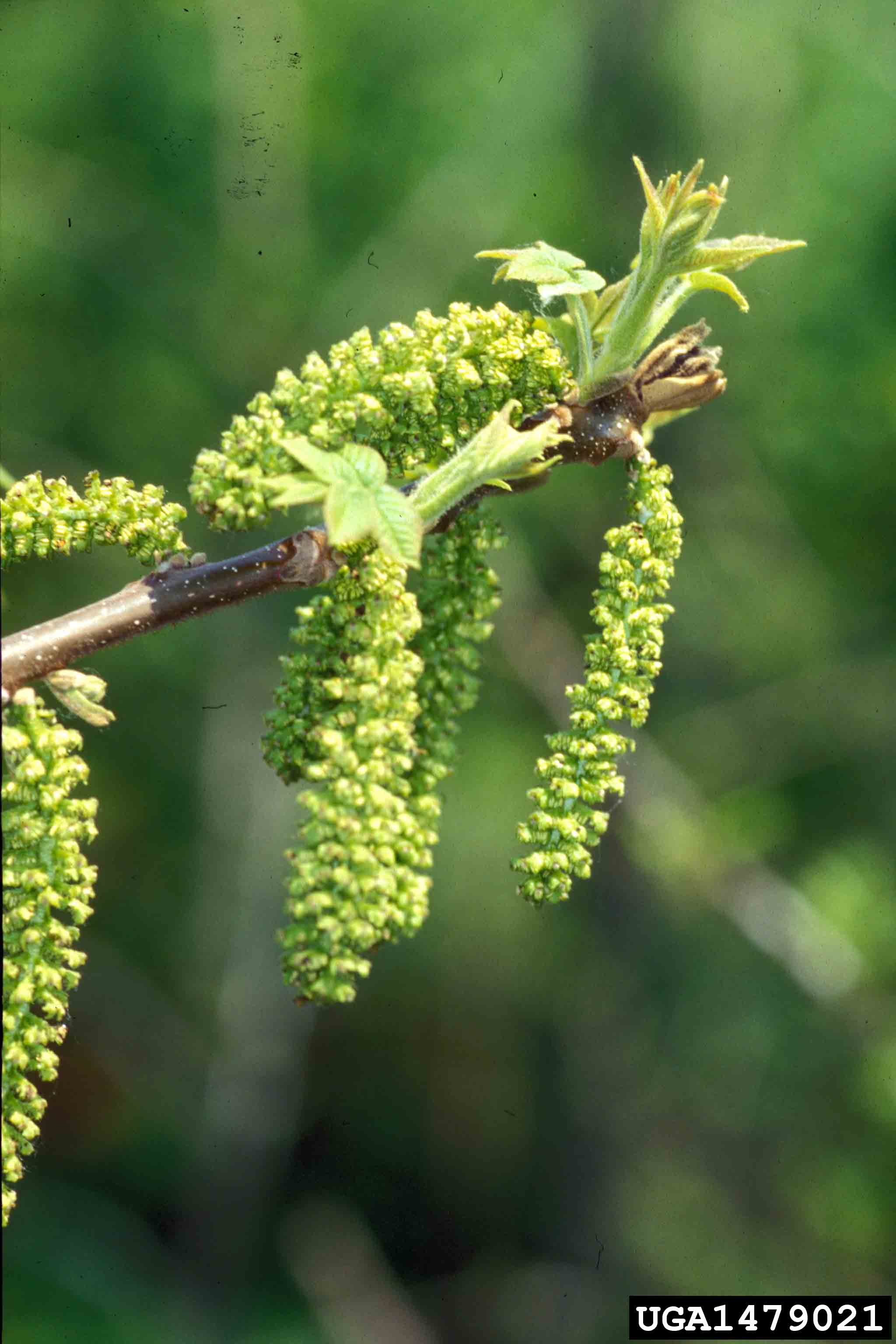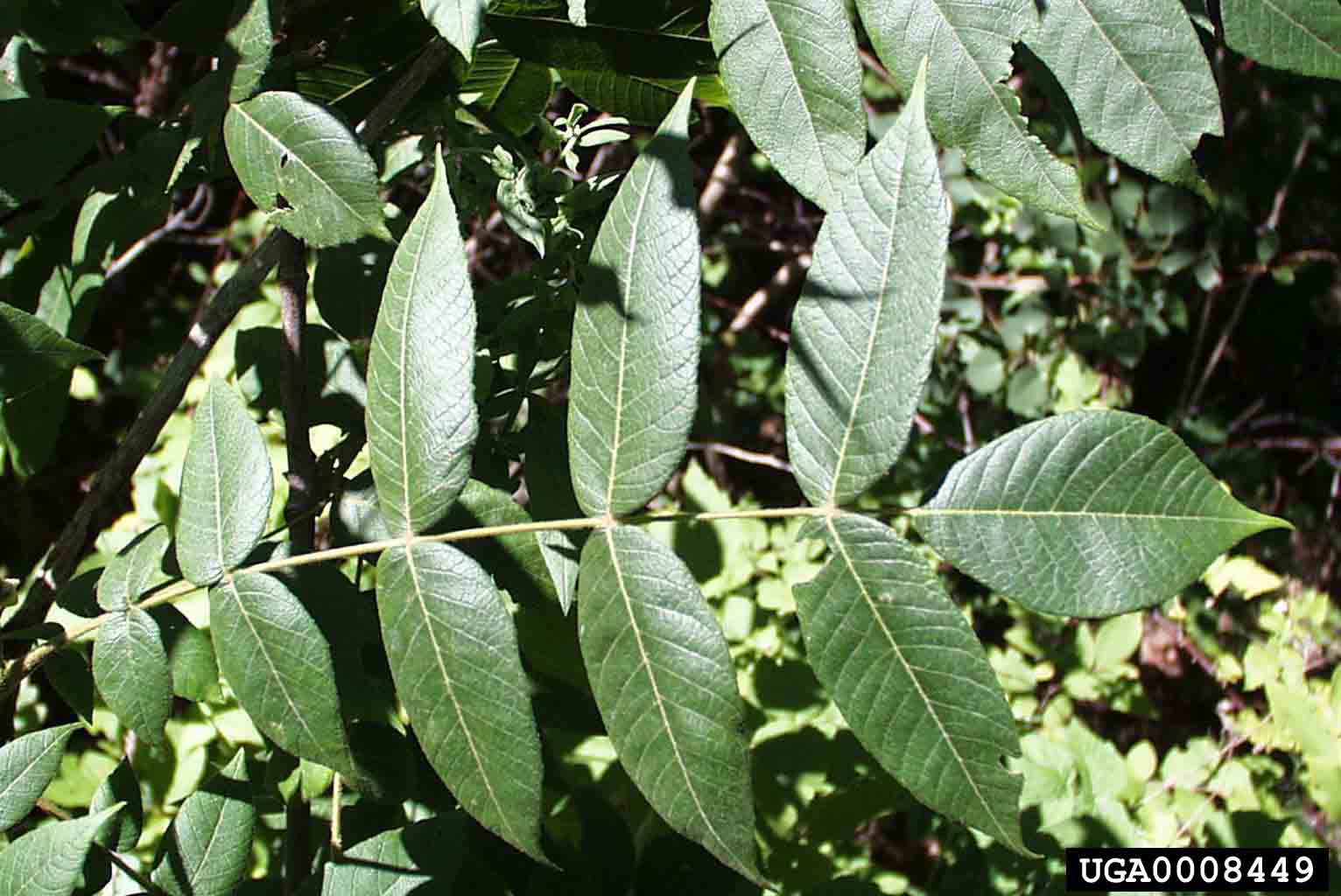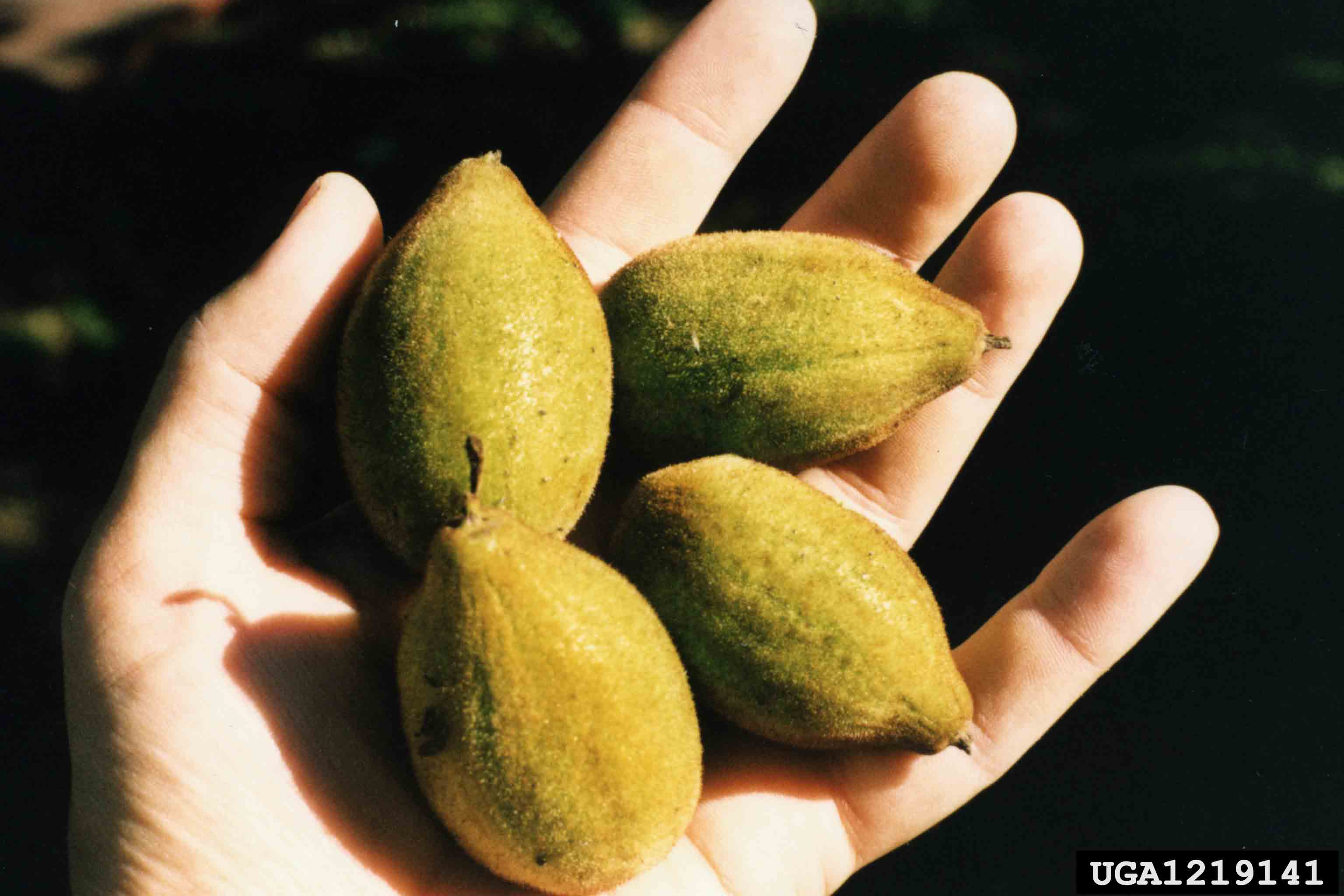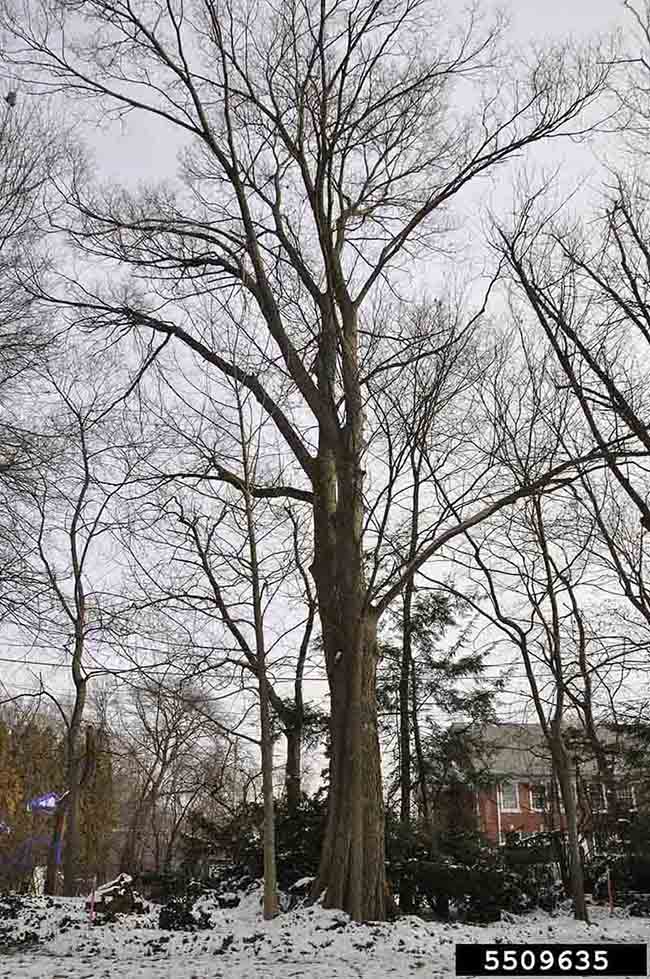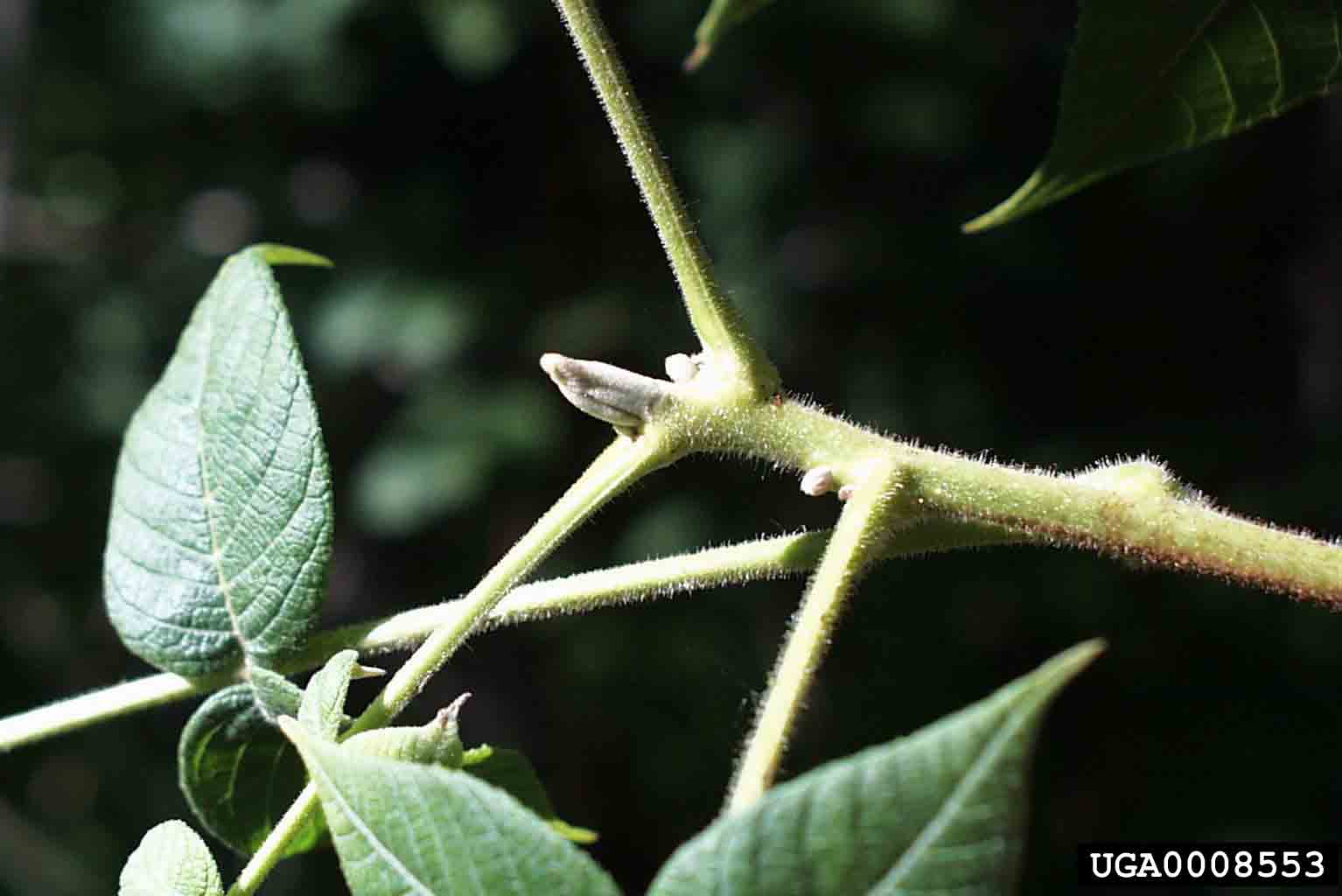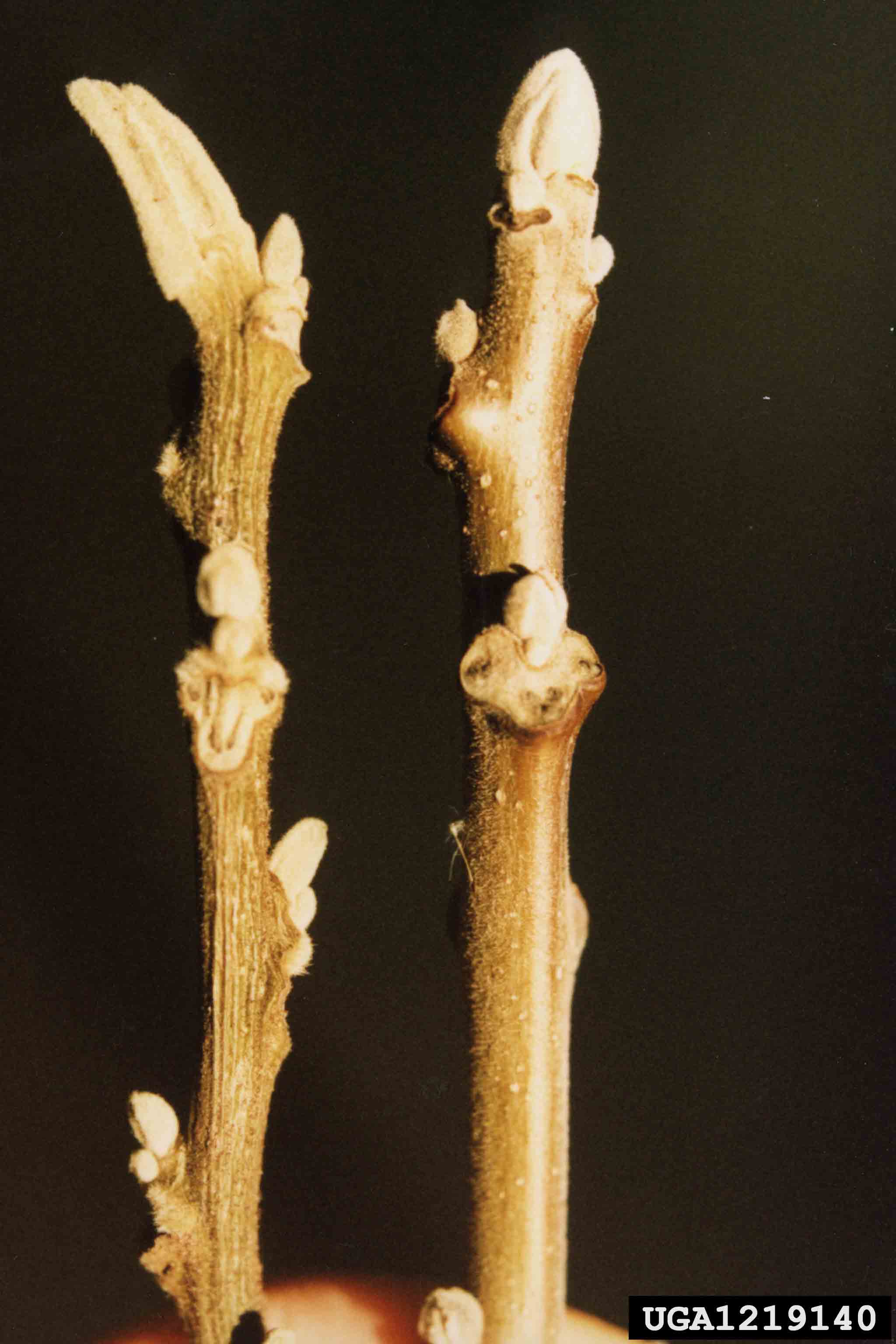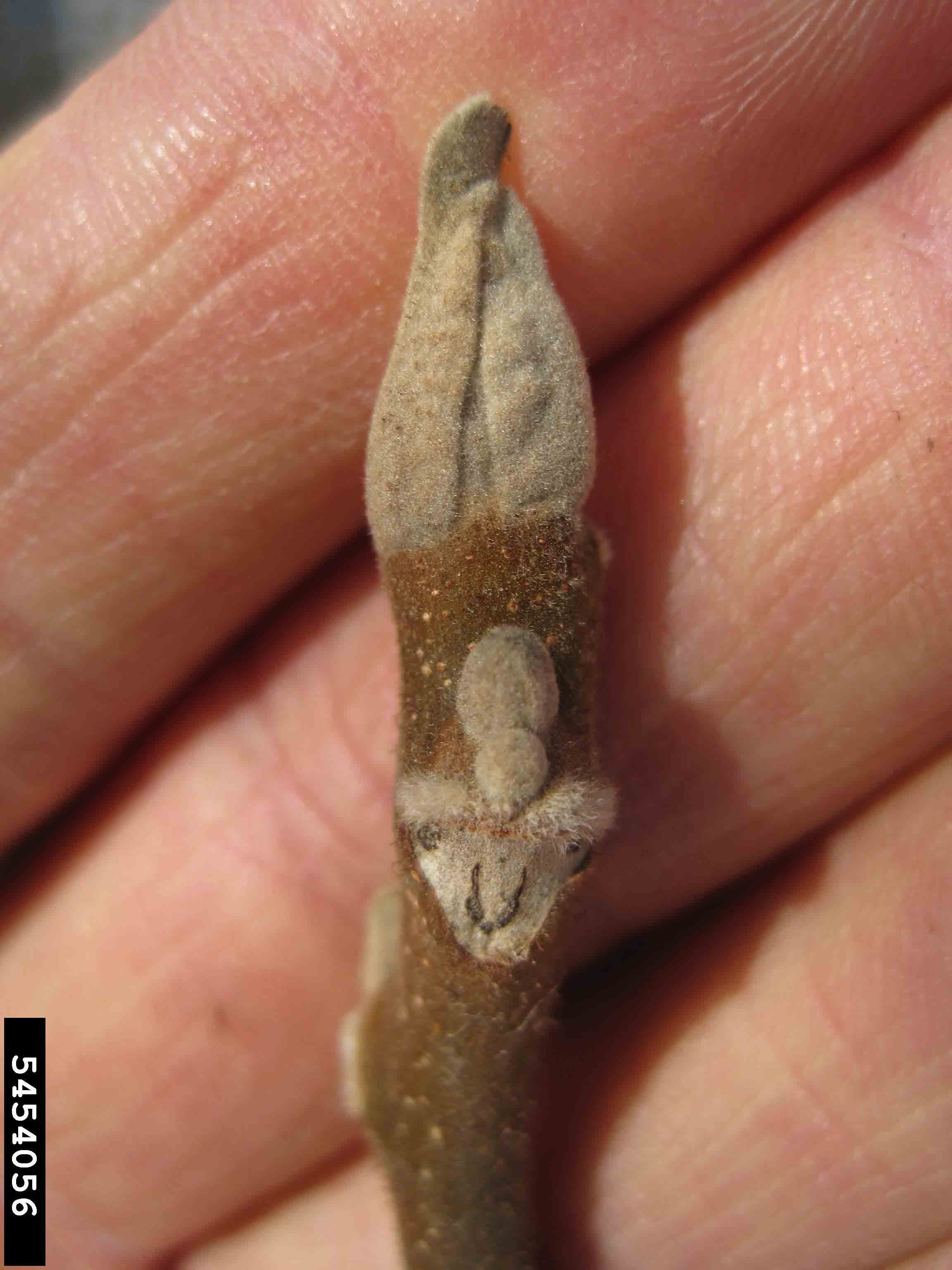Arkansas Tree Database
Butternut, White Walnut
Butternut, White Walnut
Scientific name:
Juglans Cinerea
Size:
40'-60' tall by as wide
Leaves:
alternate, odd-pinnately compound, 15"-30" long, with 11-17 sharply pointed leaflets, each 2"-5" long and finely toothed; yellow-green
Flowers:
yellow-green, inconspicous
Fruit:
greenish brown hairy husk, in clusters of 2-5, oblong and pointed instead of round like the black walnut, 2"-3" long, containing rough deeply grooved shell, with sweet, very oily, edible kernel
Fall Interest:
yellow; deciduous
Culture:
sun; intolerant of shade; rich, moist, well-drained soil; difficult to transplant because of deep taproot; trees are allelopathic, meaning they produce a chemical, juglone, that stunts or kills other plants growing nearby
Disease/Insect:
butternut canker, a usually fatal fungus
Use:
shade tree, native garden; wood not as valuable as black walnut because of softer wood and lighter color
Cultivars:
Notes:
bark light gray with broad flattened ridges; Native Americans ate the nuts and boiled the tree sap for syrup; native to Arkansas; rare
Resources:
Click thumbnail to enlarge images
